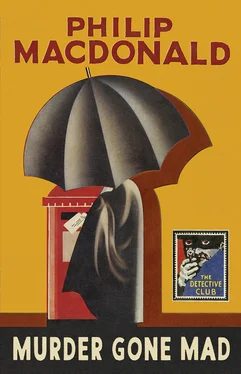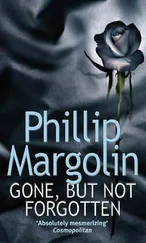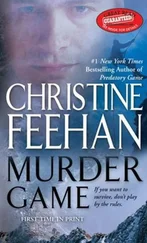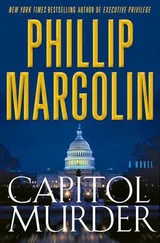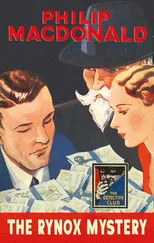‘I am sure you will join with me, gentlemen, in giving thanks to Mr Dartmouth for his untiring efforts towards this very desirable end. When I tell you that Mr Dartmouth is to be the Clerk to the new Urban District Council, nominally giving up his position as Secretary to the Company, I am sure that you will appreciate how very helpful the new situation may prove.’
Sir Montague sits down. There is no clapping because this is an informal meeting, but there is a hearty and hive-like bumble of appreciation. Sir Montague’s manservant—the only manservant in Holmdale as this is the only library—makes slow and steady round. The glasses of Sir Montague, the Managing Director, Mr Dartmouth, the Company’s Secretary who is soon to be Clerk to the Council, and the other Directors—Mr Archibald Barley, Colonel Fairfax, Mr Cuthbert Mellon, Mr Ernest May and Mr Charles E. Lordly—are filled. A prosperous enough gathering of men who have, in the manner of all big fish in small ponds, persuaded themselves that their pond is the world.
At nine o’clock in the Maxton Hall, which is on The Other Side, Mr James Wildman is concluding a speech to an earnest audience. Mr Wildman is saying:
‘… And now to come to the peroration of my remarks. I can only hope that I have done some little service to the cause, by making certain-sure that all of my audience tonight will be fighting heart and soul, tooth and nail for the Silk Workers. (Applause.)
‘Before I sit down I should like to add to my final and concluding remarks the final statement that before I sit down I should like to say that, in conclusion, and quite apart from my proper subject, it would give me great pleasure to add that I consider Holmdale Garden City (What’s that, Mr Chairman?). I beg your pardon, ladies and gentlemen, I should have said Holmdale, that I consider Holmdale to be a proper move in the right direction. It has not been my pleasure and privilege to visit this salubrious spot before this occasion of this, my auspicious visit tonight, but now that I have paid a visit to Holmdale Gar … I beg your pardon, Mr Chairman, to Holmdale, I feel that it would not be right for me to conclude my remarks and to sit down without expressing my appreciation of the very salubrious qualities of this … er … Holmdale. It seems to me that here you have pleasant homes for jaded workers; pleasant homes set in delightfully rusticating surroundings. It seems to me, in fact, that here you have the beginning of what some of our more educated friends would call the millennium. When I looked about me on my pleasant walk here with Mr Todd here up from the station to this hall where I was to address you tonight I took the opportunity of keeping—as I always do—my eyes open. What I saw was a very pleasant, clean and delightful town set down in the heart of England’s fair green countryside. It has been my painful lot, Mr Chairman, ladies and gentlemen, to have most of my life’s work laid down in the paths of the great cities, and I cannot tell you, I cannot even hope to properly or even with any degree of truthfulness tell you how much I opened my eyes at this very aptly named Holmdale of yours. It is, if I may coin the phrase, Holmdale by name and Holmdale by nature. It is a home town of little, clean, nice, decent, orderly homes; homes for that backbone of England, the working man … God bless him!’
At nine o’clock in the Baden-Powell Drill Hall, Mr William Farthingale had amassed so many points in the Progressive Whist Drive, organised by the Holmdale Mothers’ Protective Aid Society, that it seemed almost certain that he would run away with the first prize of a massive pair of ebony and silver-backed hair brushes. At nine o’clock in No. 3, Pettifers Lane, Mrs Sterling was, not without grumbling, cooking the late supper of her husband who worked at the Holmdale Electricity Supply Company. At nine o’clock in No. 14, Prester Avenue, Mrs Tildesly-Marshall was announcing to the guests in her drawing-room that Mr Giles Freshwater would now sing—Miss Sophie May accompanying—Gounod’s ‘Ave Maria’, after which we will have a little bridge. At nine o’clock in Claypits Road, Miss Ursula Finch, the part proprietor and sole editor of the Holmdale Clarion , locked up the Clarion’s office. At nine o’clock in the surgery of No. 10 Broad Walk, Dr Arthur Reade was assuring the wife of Mr Fox-Powell, the solicitor, that there would be no addition to the family. At nine o’clock in Links Lane, Albert Rogers was kissing Mary Fillimore. At nine o’clock in the parlour of The Cottage in High Collings, Mr Julius Wetherby was having his nightly quarrel with Mrs Julius Wetherby. At nine o’clock in The Laurels Nursing Home, which was on the corner of Collingwood Road and Minters Avenue, Mrs Walter Stilson, wife of the Reverend Walter Stilson, was being delivered of a son. At nine o’clock in the drawing-room of No. 4 Tall Elms Road, Mrs Rudolph Sharp, having been assailed three times that day by an inner agony, was drafting, for the eye of her solicitors, a codicil to her will. And at nine o’clock down by the station, Percy Godly, the black sheep son of Emanuel Godly, the tea-broker, whose house, just outside the bounds of the town at Links Corner, was the envy of all Holmdale, was missing the last train to London.
It was at ten-fifteen that Mrs George Colby first evinced signs of more than normal perturbation. She and her husband and the long and saturnine-seeming Mr Harvey had finished their last rubber of wagerless dummy.
Mrs Colby got suddenly to her feet. Her chair fell with a soft crash to lie asprawl upon the blue carpeted floor. In a voice which sounded somehow as if she were having difficulty with her breath, Mrs Colby said:
‘George! I—I—don’t like it! What can’ve happened to him? George, it’s a quarter past ten!’
Mr Colby looked at his watch. Mr Colby looked at the clock upon the mantelpiece. Mr Colby consulted Mr Harvey. Mr Colby, after two minutes, came to the conclusion that a quarter past ten was irrevocably the time.
‘Don’t you remember, dear,’ said Mr Colby, ‘that time when he didn’t come back until just before ten. The boxing had gone on rather longer than usual. You remember I wrote a stiff P.C. to that Mr Maclellon about it—’
‘I know. I know,’ said Mrs Colby, stooping down and picking up her chair. ‘I know, but it isn’t a few minutes to ten now, George. It’s a quarter past !’ She suddenly left off fumbling with her chair and as suddenly was gone from the room. The door slammed to behind her.
‘I expect,’ said Mr Harvey, looking at his host, ‘that the lad’s up to some devilment. A fine lad that and, personally, Colby, I’ve no use for a boy that hasn’t a bit of the devil in him. I remember when I was a lad—’
‘Clara,’ said Mr Colby, ‘gets that worked up.’ He looked at his watch again. ‘All the same, Harvey, ol’ man, it’s late for the nipper. Have a drink? I’d go out only I expect that’s where Clara’s gone. She’ll find him all right playing Tig at the end of the street or something.’
‘Yes,’ said Mr Harvey, and laughed with due heartiness.
The door opened again. A small rush of air blew cool upon the back of Mr Colby’s neck. Mr Colby turned. He saw Mrs Colby. She wore a coat about her plump and admirable shape and a hat pulled anyhow upon her head. But she did not go out. Instead, she dropped in the chair which just now she had left, and, gripping her hands with tightly interlocked fingers one about the other, sat breathlessly still and said:
‘I don’t feel up to it, George. You go and see.’
George looked at his Clara. ‘Tired, my dear?’ said George. ‘We’ll go instead, eh, Harvey?’
‘A breath of fresh,’ said Mr Harvey facetiously, ‘is just what the doctor ordered.’
Читать дальше
